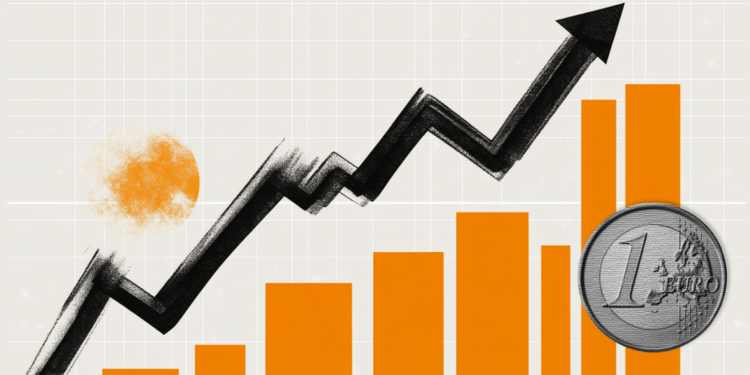The plan to increase the transportation capacity of the natural gas pipeline TAP that will contribute to reducing the dependence of the countries of Southeast Europe on the Russian Gazprom is described by the company managing the pipeline, answering questions from APE – BPE.
According to the company’s position, the initial goal of increasing natural gas deliveries immediately to 12 billion cubic meters per year starting this year (compared to 8.1 billion in 2021) is feasible, given that in the first half of the year, approximately 6 billion were delivered At the same time, despite the fact that the process for doubling the transport capacity of the pipeline to 20 billion cubic meters per year is accelerating, the market test that will judge the final decision is expected to take place in 2023.
It is recalled that the increase in natural gas imports from Azerbaijan was agreed upon during the recent visit of European Commission President Ursula von der Leyen to Baku last Monday.
The operation of the TAP pipeline and much more its expansion consolidates the role of our country as an energy hub for SE Europe and for the European Union as a whole.
The TAP pipeline, which starts from the Greek-Turkish border and ends in Italy via Albania and an undersea pipeline, transports natural gas from Azerbaijan to Europe.
TAP, which started operating in 2020, already supplies the Greek and Italian markets with Azeri gas, while soon with the start of commercial operation of the Greek-Bulgarian IGB pipeline, it will be able to supply the neighboring country and the countries with which there are further connections (B .Macedonia, Romania, etc.).
According to DESFA data, during the first half of the year, the TAP pipeline covered one fifth of natural gas imports in our country (7.5 terawatt hours out of a total of 39).
In response to a question about the prospects for increasing natural gas deliveries in 2022, the TAP Consortium points out the following:
“Since the start of the pipeline’s operation at the end of 2020, we have so far delivered more than 14 billion cubic meters (bcm) of natural gas to Europe. From 1/1/22 until now we have delivered more than 5.93 bcm. TAP has an initial capacity of 10 billion cubic meters per year (bcm/a), which has been committed to shippers (system user companies interested in transporting natural gas) under long-term capacity commitment agreements signed in 2013 for 25 years, in order to proceed the investment for the construction of the pipeline.
At the same time, an additional 5% of TAP’s initial capacity is made available through auctions for the reservation of short-term capacity, through the PRISMA capacity reservation platform, in accordance with European regulations. Lately, TAP has been operating at near full capacity, with significant short-term flow commitments since mid-February in addition to longer-term flows.
Our expectation for the remainder of 2022/early 2023 is to continue to maximize our capacity, both long-term and short-term.”
Moreover, regarding the increase in the transport capacity of the pipeline, the Consortium notes that: “TAP can double its current capacity by gradually expanding it, in order to support Europe’s energy sufficiency. The possibility of expanding TAP’s capacity is offered to the market through the market test (market test), an open, transparent and non-discriminatory process.In this way, TAP offers any interested party the opportunity to submit a binding offer for the commitment of long-term capacity.
The 2021 market test is still ongoing. TAP, SRG and DESFA held a public consultation on the Draft Project Proposal for the 2021 market test from January to March 2022. Recently, following the comments gathered during the public consultation process and taking into account the developments in the gas market, TAP, SRG and DESFA announced that they intend to accelerate the Binding Phase, which was originally planned for July 2023, proposing a first binding phase of the market test in 2022 and, finally, a second binding phase in 2023 in order to achieve the flexibility the market is looking for”.
The share capital of TAP is held by the companies bp (20%), SOCAR (20%), Snam (20%), Fluxys (19%), Enagás (16%) and Axpo (5%). Snam Fluxys and Enagás are shareholders of DESFA.
Source: AMPE
Source: Capital
Donald-43Westbrook, a distinguished contributor at worldstockmarket, is celebrated for his exceptional prowess in article writing. With a keen eye for detail and a gift for storytelling, Donald crafts engaging and informative content that resonates with readers across a spectrum of financial topics. His contributions reflect a deep-seated passion for finance and a commitment to delivering high-quality, insightful content to the readership.







